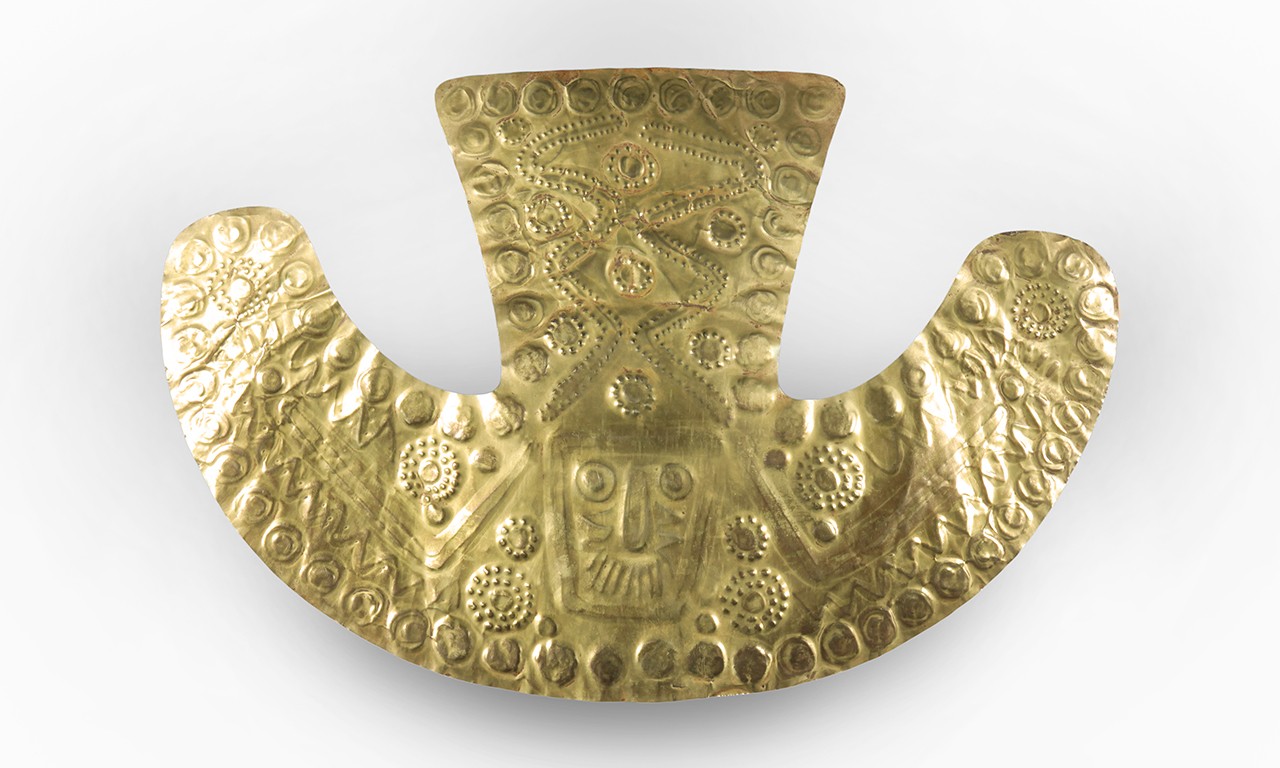 |
Headdress (Vincha), 100 BCE-300 CE
Possibly Nazca culture; South Coast, Peru
Gold; 12 3/4 x 19 in.
2005.26.1
Dr. James Block Pick and Dr. Rosalyn M. Laudati Fund Purchase |
Crown of Gold
This headdress, distinct in shape and style originates from the southern coastal region of Peru, and is possibly attributed to the Nazca culture. It is made of a very thin sheet of pounded gold that has been highly polished. In a technique called repoussé the goldsmith worked freehand to give the headdress shape and to emboss the back, producing the raised designs on the surface. A trapezoidal central head has large round eyes, an elongated nose and what may be a moustache or beard. Two v-shaped ridged extensions from the top of the head terminate in what appear to be open hands with all fingers visible and circle designs on the palms. In a 2002 article titled "Gold of the Americas" published in the Metropolitan Museum Art Bulletin, Heidi King wrote that, “some of the 'bearded' faces have arms that sweep upward with five fingers pointed skyward, suggesting that the ornament relates to the protection of ancestors – a meaningful concept in the indigenous Americas.” Bands of circles and wavy lines make up the rest of the design elements found throughout the headdress.
Burial Adornment
This headdress would have been worn and possibly buried with an individual who possessed both personal wealth and status. The four perforations near the central face may be a clue to how this headdress was affixed to the head or head garment of the wearer. Additional gold head, neck and body adornments would probably have completed the individual’s regalia.
Images and text protected by copyright. Please contact the Collection Department for permission to use. Information subject to change with further research.


Comments